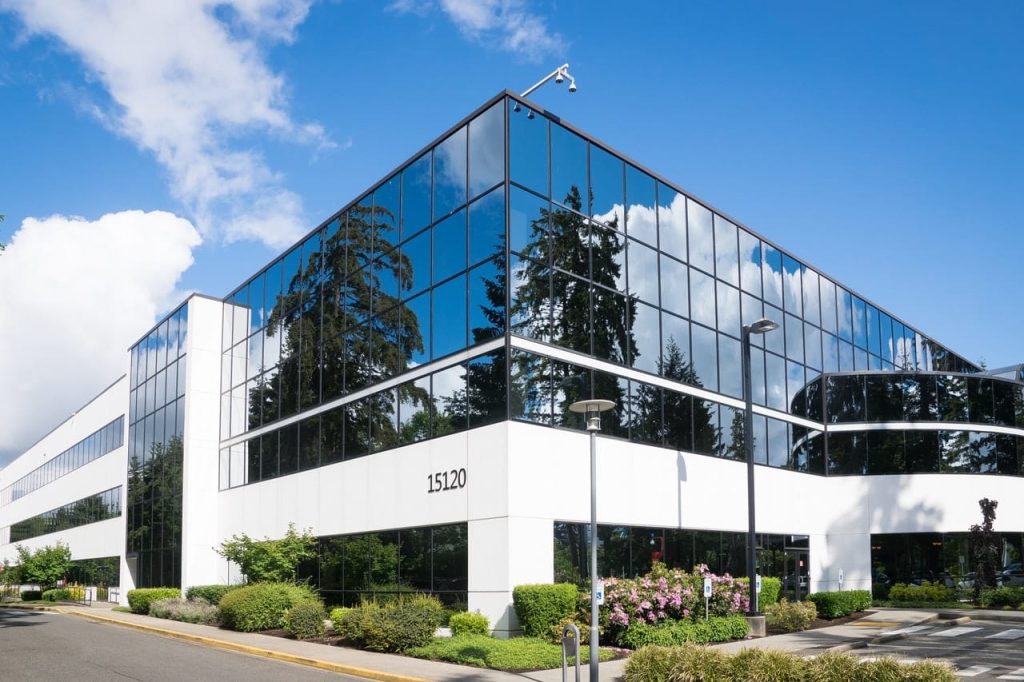As the digital world grows exponentially, the demand for data centers has surged to unprecedented levels. At the same time, the landscape of commercial real estate is undergoing a significant transformation due to changes in work environments, urban planning, and technological advancements.
The confluence of these two trends has given rise to a compelling question: Could commercial real estate be the next big opportunity for data centers?
This article explores how repurposing commercial real estate for data center use is becoming an innovative solution for businesses and developers alike.
From its economic viability to sustainability advantages, the concept has the potential to redefine both industries while presenting unique challenges.

CLICK HERE TO LEARN MORE ABOUT OUR DATA CENTER SERVICES
The Digital Revolution Driving Data Center Demand
1. The Explosion of Data
The advent of technologies like 5G, IoT, artificial intelligence, and cloud computing has led to a massive increase in data generation.
Businesses and individuals are more reliant on online services than ever, creating a need for robust and efficient data infrastructure.
2. Edge Computing and Urbanization
As data usage grows, edge computing is becoming a necessity. Edge computing involves processing data closer to its source to reduce latency and improve user experience. This trend is driving demand for data centers in urban areas, where commercial real estate is abundant.
3. The Remote Work Shift
The pandemic-induced shift to remote work has left many office buildings underutilized. Commercial landlords are now seeking alternative ways to use their spaces, with data centers emerging as a viable option.
The Benefits of Converting Commercial Real Estate to Data Centers
1. Strategic Location Advantages
Commercial properties in urban areas often boast prime locations, providing access to robust connectivity and proximity to consumers. This makes them ideal for hosting data centers that support edge computing applications.
2. Cost-Effectiveness
Constructing new data centers from scratch can be costly and time-consuming. Retrofitting existing commercial buildings can significantly reduce construction expenses, labor costs, and project timelines.
3. Sustainability
The reuse of commercial buildings aligns with global sustainability goals. By repurposing existing structures, developers minimize construction waste and reduce the carbon footprint associated with new builds.
4. Increased Revenue for Real Estate Owners
For commercial property owners, leasing buildings to data center operators provides a stable and lucrative revenue stream. Data centers are long-term tenants with consistent demand, offering real estate owners financial stability.
5. Enhanced Connectivity
Urban commercial properties often have access to established power grids and fiber-optic networks, making them easier to convert into data centers.
Success Stories: Commercial Real Estate Meets Data Centers
1. Google’s Repurposed Office Spaces
Google has been at the forefront of converting commercial real estate into data centers. By acquiring underutilized office buildings, Google has efficiently expanded its data center operations while keeping costs in check.
2. Data Center Urban Development in Singapore
In densely populated Singapore, limited space has driven data center providers to repurpose commercial real estate. These facilities now support edge computing for industries such as finance, healthcare, and e-commerce.
3. Verizon’s Innovative Approach
Verizon has turned several urban office spaces into small-scale edge data centers, enabling low-latency services for its telecom customers in metropolitan areas.
Rack and Stack Services: Harnessing the Full Potential of Rack and Stack Services | Reboot Monkey
Challenges of Converting Commercial Real Estate
1. Infrastructure Limitations
Commercial buildings are not originally designed for data center operations. Retrofitting these structures requires extensive modifications to accommodate power and cooling systems, high-capacity fiber networks, and physical security measures.
2. Regulatory and Zoning Issues
Local regulations and zoning laws may restrict the repurposing of commercial buildings into data centers. Developers must navigate complex legal frameworks to ensure compliance.
3. High Energy Demands
Data centers consume substantial amounts of electricity. Ensuring that the local grid can support these demands is a crucial consideration when converting commercial spaces.
4. Cybersecurity Concerns
Transforming commercial spaces into data centers necessitates robust cybersecurity measures to protect against physical and digital threats.
Future Trends: The Evolving Relationship Between Real Estate and Data Centers
1. Mixed-Use Data Centers
The future may see the rise of mixed-use buildings, where data centers coexist with other commercial or residential spaces. This approach maximizes space utilization in urban areas.
2. Green Data Centers
As sustainability becomes a priority, developers are exploring eco-friendly designs for data centers in repurposed commercial properties.
These include solar power integration, efficient cooling systems, and green building certifications.
3. Smart Building Integration
The integration of smart building technologies can enhance the efficiency and functionality of data centers in commercial spaces, enabling real-time monitoring and energy optimization.

Comparing Commercial Real Estate with Traditional Data Center Models
| Aspect | Commercial Real Estate Data Centers | Traditional Data Centers |
|---|---|---|
| Cost | More cost-effective due to retrofitting | High costs due to new construction |
| Location | Urban-centric for edge computing | Often located in suburban or rural areas |
| Sustainability | Eco-friendly through reuse of materials | Requires significant new resources |
| Setup Time | Faster due to existing infrastructure | Longer due to construction from scratch |
| Regulatory Hurdles | Potential zoning restrictions | Designed for compliance from the outset |
Why Businesses Should Explore This Opportunity
1. Scalability and Flexibility
Repurposed commercial real estate allows businesses to scale operations quickly in response to growing data demands.
2. Competitive Edge
By leveraging urban locations, businesses can offer low-latency services, giving them a competitive advantage in industries like finance, healthcare, and gaming.
3. Cost Savings
Reduced capital expenses mean businesses can allocate resources to other critical areas, such as innovation and customer service.
How Reboot Monkey Supports Data Center Solutions
At Reboot Monkey, we specialize in providing comprehensive data center solutions, including remote hands services, smart hands support, and server migration expertise.
Our team is dedicated to helping businesses navigate the challenges of modern data infrastructure, whether they’re exploring commercial real estate conversions or traditional data center setups.
Conclusion: A Transformative Opportunity
The intersection of commercial real estate and data centers represents a transformative opportunity for businesses and developers alike.
By repurposing underutilized properties, organizations can meet growing data demands while achieving cost efficiency and sustainability goals.
For businesses ready to embrace this trend, partnering with a reliable service provider like Reboot Monkey ensures expert guidance and seamless implementation. Contact us today to learn how we can help you capitalize on this exciting opportunity!
